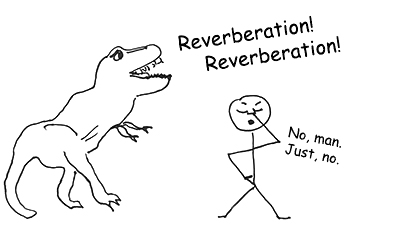
Plenty of otherwise capable writers are guilty of thesaurus abuse.
It’s easy to see why: we all want our writing to be clear, vivid, and engaging. Choosing the right words is how we’re able to shape details in our readers’ imaginations, express the precise results of an experiment, or persuade someone to buy a product.
Often, we’ll write something, and it won’t be quite perfect. That generic word hanging out in the middle of our sentence just isn’t doing it. Or we want to sound smarter. Or more creative.
So we turn to our old friend the thesaurus, so handy with offering suggestions for alternatives.
One thing leads to another, and soon a measured, expressive, clear piece of writing has exploded in a tangle of obscure adjectives and cryptic verbs.
Get a free sample proofread and edit for your document.
Two professional proofreaders will proofread and edit your document.
So What Good Is It?
The thesaurus is a powerful tool, but you have to use it properly. And for this there is only one rule: never, ever use a word you don’t already know.
If you just swap out words willy-nilly, a thesaurus is useless. It will tell you that another word for art is virtuosity, and you end up writing, “We enjoyed looking at all the virtuosity on the walls.” It will tell you that a substitute for videotape is capture, and you’ll email a friend, “Please return my capture.” It will tell you that another word for rooster is…well, you get the idea.
 When used correctly, a thesaurus can help you punch up your writing by using just the right word when you want it. Just make sure you’re sure it’s the word you want.
When used correctly, a thesaurus can help you punch up your writing by using just the right word when you want it. Just make sure you’re sure it’s the word you want.
That said, here’s three tips for using the thesaurus to enhance your next piece.
We’re all guilty of having words we overuse. Sometimes this is a global issue (for instance, I have to be physically stopped from using the word actually all the time). Sometimes it’s a matter of a particular piece in which a certain word just keeps cropping up (like repeating “kingdom” four times in a paragraph). Sometimes it’s a word fad, like utilize.
Adding variety to your writing keeps it fresh and engaging for the reader; seeing the same word repeated too often in too short a space causes readers to gloss over and start skimming.
A great professional editor can point out places where you’re echoing yourself too closely and offer suggestions. You can also train yourself to self-edit by watching out for words you know you over-rely on.
See any words repeating frequently? Pop over to the thesaurus and find alternatives for one or two to keep things fresh.
The thesaurus is also your friend when you’re seeking to add nuance and depth to a description.
While straightforward phrasing is often the best approach, especially in nonfiction and academic texts where you want your reader to understand exactly what you mean, there’s an art to choosing the exact right word for the exact right spot.
This is where the thesaurus comes in. You can hop over to the thesaurus to search for alternatives to a prosaic word that might better convey your meaning.
For instance, in the previous sentence, I could tweak the meaning in subtle, but important, ways by swapping out prosaic. Check out how it reads after a trip to the thesaurus:
Similar to manipulating the nuance of your writing, our old friend the thesaurus can also help you change the tone of your work.
Take another look at those altered sentences. Check out how the different words—prosaic, hackneyed, lackluster, vanilla—change the tone. Prosaic gives it a more academic feeling, more formal and reasoned. In contrast, vanilla is less formal, more slang-y, and perhaps more vivid in the right reader’s mind.
When you’re writing for a specific audience and purpose (as you always should be), keep in mind the tone that audience expects.
Writing a paper for school? Use the thesaurus to help you select words that are more formal (but not necessarily bigger), replacing slang or generic terms with more specific, scholarly alternatives.
Crafting dialogue for an action-packed thriller novel? Swap out those formal terms with more colloquial options, enhancing the tension and realism by choosing words that feel more authentic to your mobster bad guy.
By using the thesaurus carefully and consciously, you can dramatically improve the flow, clarity, and tone of your writing.
Kate S.
Get a free sample proofread and edit for your document.
Two professional proofreaders will proofread and edit your document.
Get a free sample proofread and edit for your document.
Two professional proofreaders will proofread and edit your document.
We will get your free sample back in three to six hours!